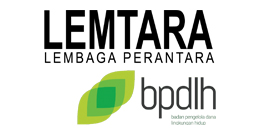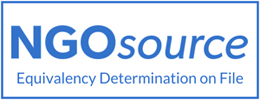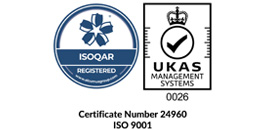Public Accountability
The phenomenon of self-regulation or swatata observed in almost all aspects of daily life, from physical systems, chemistry, biology, psychology, culture and system of government. Swatata system is defined as a spontaneous emergence of new structures and new forms of behavior in open systems far from equilibrium, characterized by rounds of internal feedback and nonlinear. Random changes encourage swatata, allowing exploration of new space of certain condition.
On swatata system, we are dealing with complex systems that behave in simple way. When the country does not (yet) really present in the midst of society, then the swatata system was the one who actually existed so far.
Penabulu believes that an understanding of the swatata system will become a fertile space for strengthening public accountability. One important element in the strengthening of public accountability is the public’s right to obtain information. The right of every citizen to obtain relevant information will also improve the quality of community involvement in public decision-making process and encourage the government to be more accountable. Participation or community involvement does not mean much without a guarantee of public disclosure that provides a participation of citizens in governance (social participation), the accountability of government to citizens (social responsibility), citizen support on the course of government (social support), and the control and supervision of residents against government actions (social control).
The program is dedicated to the development of a collaborative effort in creating the best conditions for regional development at the district/city to the village level by encouraging governments to be more open in presenting public information for citizens, bridge or building a model of the channel information and dialogue itself, as well as enhance critical understanding and the analytical capacity of community on public information.
The program will conduct various studies and research, especially for the discovery of regional potential; facilitation of planning processes and local-level policy development, open literacy development, development equal dialogue forum between government and citizens, and especially with the development of collaborative interface platform that embodies the current openness and dialogue on public information by maximizing the use of information and communication technology.
- NGO Financial Management Index and Finance Officers Network
- Research and Development of Citizen Access Platform on Regional Development Budget
- Strengthening Public Financial Management Capacity to Improve Public Service Delivery at Frontline Service
- Development of Community Involvement Report on Budget Advocacy
- Headquartered in the Greater Jakarta, with the support of some areas as a source of sample data
- Surakarta City, Central Java
- District of Jeneponto, South Sulawesi
- East Java
- Nusa Tenggara Barat
- Makassar
- Semarang
- Surabaya
- Malang
- Bandung
- Lampung
- Medan
- A review of the entire official website of district/city in Indonesia, its suitability with the instructions of the Minister of the Interior No.188.52/1797/SJ about Transparency of Regional Budget Management (TPAD).
- An Initiative to develop the use of ICT-based platform for monitoring, oversight over the performance of local government budgets.
- Indonesia Dalam Angka | Regency/City Data in Numbers
- An independent initiative of Kawatama and Penabulu Alliance in the presentation of model of data and information of regencies/cities in numbers in Indonesia in the form of visual website that accessible to the public via the internet.
- SIMPUL Desa | Integrated System of Village Administration Data
- Application software intended for the village government officers in order to manage the village administrative data in an information system and an integrated electronic reporting in accordance with Ministry of Home Affairs Regulation No. 32 of 2006 on the Village Administration Guidelines.
- SIAP Desa | System and Financial Application of Village Fund
- Application software intended for the management and preparation of reporting locally-generated revenue (PAD – Pendapatan Asli Daerah), central-regional equalization funds (Dana Perimbangan), Village-Fund Budget (ADD – Anggaran Dana Desa) also including a new revenue source for the village, namely Village Fund (DD – Dana Desa) from the state budget (APBN), drawn up by Ministry of Home Affairs Regulation No. 113 of 2014 on the Village Financial Management which is a refinement of the Ministry of Home Affairs Regulation No. 37 Year 2007 on Guidelines for the Rural Finance Management.
- Interface | Encouraging Transparency of Public Information
Service unit of Penabulu Alliance, working for the development of ICT-based interface platform to encourage public disclosure and open equal space dialogue between the government and citizens.
Dutch development institution that primarily focusing on economic structural change for sustainable and inclusive society.
- REKSTA (PT Reksa Tata Artha)
A distributor company for after-sales service and guarantor of the application SIMPUL Desa and SIAP Desa.
- JPIP (The Jawa Pos Institute of Pro-Otonomi)
Nonprofit institution founded by Jawa Pos Group as a form of social responsibility of Jawa Pos to promote the progress of economic life, social and political conducive through the implementation of regional autonomy.
KOMPAK is a facility funded by the Australian Government to support a number of Government of Indonesia (GoI) programs in achieving the RPJMN 2015-2019 targets of reducing poverty by improving the quality and coverage of basic services and by increasing off-farm economic opportunities for the poor.
The Global Fund is a partnership designed to accelerate the end of AIDS, tuberculosis and malaria as epidemics. As an international organization, the Global Fund mobilizes and invests more than USD 4 billion a year to support programs run by local experts in more than 100 countries. In partnership with governments, civil society, technical agencies, the private sector and people affected by the diseases, we are challenging barriers and embracing innovation.




